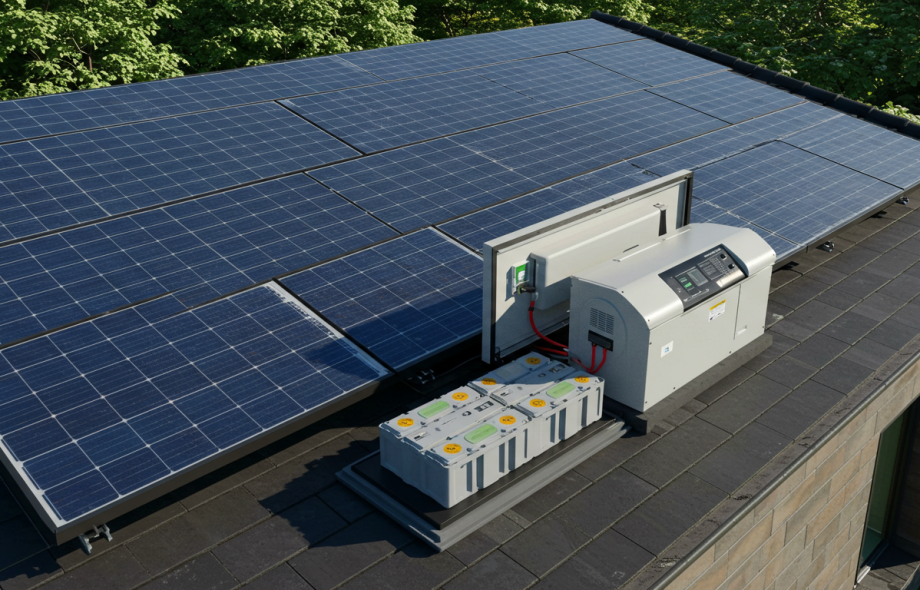Energy consumption is on the rise in modern society, and this calls for more sustainable means of energy production. Out of all the energy solutions, solar seems to be the most environmentally friendly and cost-effective. Before embarking on such a journey, however, it would help to have a solar power system that can meet your needs for either your business or home. This needs to satisfy a plethora of needs ranging from energy use, location, and even your budget. This article outlines the key steps and factors to help you make an informed decision when choosing a solar power system.
1. Think about the Kind of Solar Panels
Various types of solar panels come with a variety of strengths and weaknesses. There are three common types:
- Monocrystalline Panels: These panels contain a single continuous cell and because of this they are regarded as the most efficient, with a 15%-22% efficiency rate. Considering their efficiency alongside their size, they can be more expensive than the other options. If you have a small rooftop or want to maximize the effectiveness of the panel, this panel is perfect for you.
- Polycrystalline Panels: These panels also use silicon but instead of using a single crystal they use multiple melted ones. The efficiency of this kind of panel ranges around 15%-18% which is less than monocrystalline but they cost less. If your rooftop is big and you are on a budget, then this panel would be a better choice.
2. Electric Power Storage Alternatives
Electric power storage enables solar energy systems to accumulate surplus electricity which can later be utilised at night or when thick clouds linger. There are still locations prone to electricity disruptions where electric power storage and grid independence are desired. For this, you need solar energy experts. Broadly, there are two types of solar batteries which include:
- Lithium-Ion Batteries: This battery type is the most familiar to clients with residential solar systems. Lithium batteries also have greater efficiency, more tangential performance, and a greater shelf life. It must be pointed out, however, that they also are the expensive ones.
- Lead-Acid Batteries: While these make for an economical option, they have a lower overall performance and have fewer cycles compared to lithium-ion batteries. They are usually used for off-grid systems or standalone small applications and the concern is the cost.
Batteries should be selected in such a way as to satisfy expected discharges based on their ratings and the daily energy requirements of the household. The size of the battery should correlate to the daily amount of energy consumed by the household and the anticipated usage in case of power cuts.
3. Assess Your Finances
The price of the solar power system may differ greatly depending on the type of system, its size, and the number of extra components like batteries included. Consider the following points when estimating the costs of the solar system:
- Costs Incurred: The direct cost of buying and setting up a solar system can in fact be very high. Most governments, however, provide some form of subsidies, tax credits, or rebates to ease this cost. For instance, the government in the USA gives out a solar tax credit which pays for roughly 26% of the cost of installing the system.
- Money Saved: Considering setting up the system can be costly in the beginning, over the course of time, you would be saving a lot in your electricity bills. In terms of how long it might take for you to recover this initial investment consider anywhere from 5-10 years depending on your country and how much electricity you tend to use.
- Financing Programs: If you are not able to pay for the whole solar system at once, you can also opt for solar loans, leases,s or power purchase agreements. Even providers offer manageable monthly repayment options.
4. Selecting a Trustworthy Installer
After you have determined your energy requirements, location, and budget, the next thing in line is finding a trustworthy solar power installation. A qualified installer is bound to perform a site survey, compute the total energy demands of your home or business, and provide an inclusive estimate. Never forget to check if the company has the required certifications, reviews, or even proof of insurance so you are sure you are engaging in business with a reputable firm.
Conclusion
In the case of acquiring a solar power system, multiple aspects such as energy requirements, location, physical space available, budget, and other variables such as battery capacity and power usage efficiency would need to be factored in. As a result of a mindful assessment of the stated factors, there is a guarantee that the solar power system would serve its intended purpose of sourcing energy for a longer period.
Yes, while it may seem daunting to invest in a solar energy system for the first time, it is essential to acknowledge that the long-term effects, both economically and environmentally, are more advantageous to a considerable number of homes and businesses. Invest wisely, engage with the professionals, and choose a suitable system that meets your specific needs.












